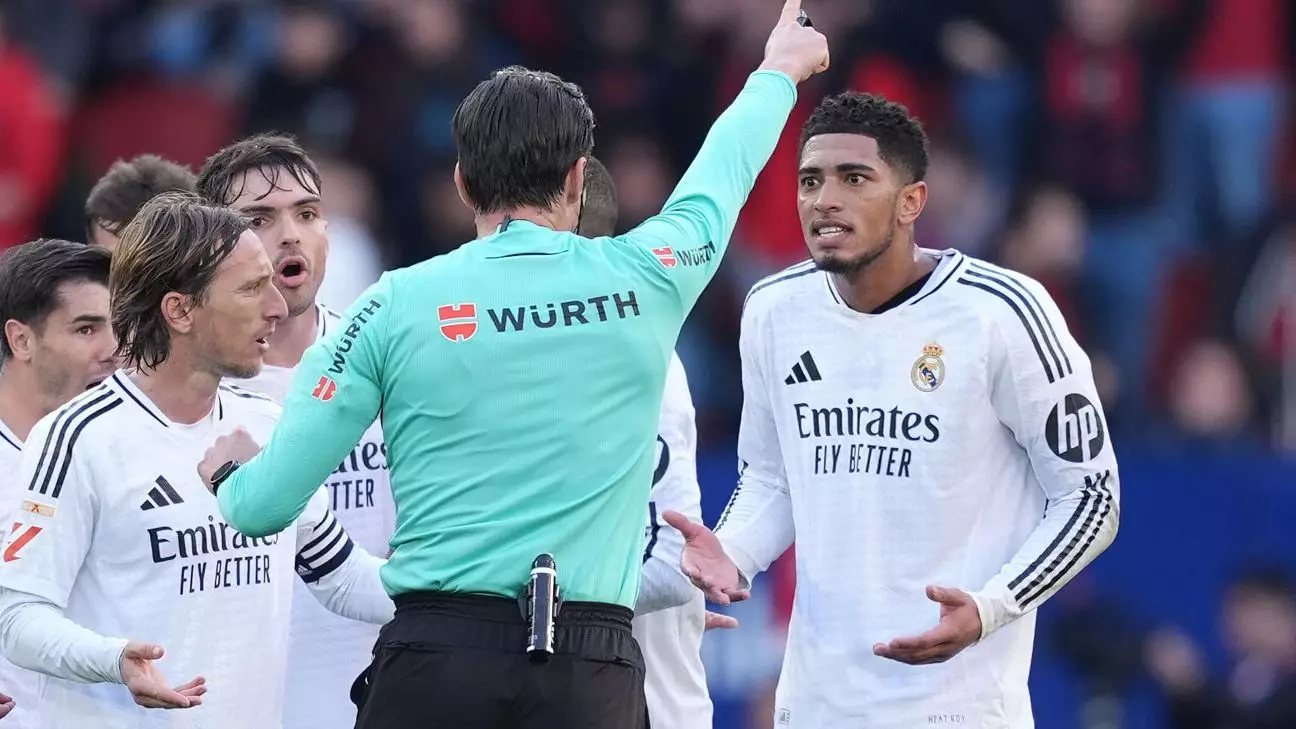In the high-stakes world of professional football, the roles of referees are critically scrutinized, and the pressure on them can be immense. This was vividly illustrated in the recent case involving Spanish referee José Luis Munuera Montero, who officiated a contentious match between Real Madrid and Osasuna. The game ended in a 1-1 draw, but not without controversy, particularly concerning the red card issued to Real Madrid’s Jude Bellingham. This decision sparked backlash not only from players and fans but also from the media, leading to a significant inquiry into Munuera’s professional integrity.
The situation escalated when reports emerged linking Munuera’s co-ownership of a sports consultancy firm, Talentus Sports Speakers, with potential conflicts of interest. The firm had ties to various football institutions, raising concerns about whether Munuera could make unbiased decisions on the pitch. In response to this uproar, the Royal Spanish Football Federation (RFEF) announced an investigation to evaluate any possible ethical breaches stemming from Munuera’s business affiliations. It’s troubling that the element of mistrust towards referees has grown, nonetheless, as Munuera faced the investigation, he was also inundated with a wave of online vitriol, including threats and abusive comments on his social media accounts.
After a thorough review, the RFEF declared on Thursday that there was no evidence of wrongdoing on Munuera’s part, asserting that his involvement in the consultancy did not impede his refereeing duties. They examined extensive documentation related to his business activities and concluded that the referee’s roles were separate and compliant with the regulations governing conflict of interests. Furthermore, Munuera defended himself vigorously, stating he had not issued invoices to any sporting entity since the establishment of his company, reinforcing his stance against the allegations posed by the media.
This incident underscores a larger narrative regarding the treatment of match officials in the sport. The RFEF condemned the abuse directed at Munuera, highlighting ongoing issues of hostility towards referees in football—a profession often taken for granted despite its essential role in maintaining the game’s integrity. In light of this, the federation has expressed urgency to reinforce support for referees, emphasizing the importance of safeguarding their mental health in an environment increasingly threatened by verbal violence and intimidation.
The case of José Luis Munuera Montero serves as a prism reflecting the complexities and challenges of officiating at the highest level of football. While the inquiry concluded with his exoneration, the reactions to his decision-making reveal a troubling undercurrent of mistrust and hostility that must be addressed. If the football community hopes to protect and empower referees, it is imperative to foster a culture of respect and professionalism, ensuring that those who officiate can perform their roles free from the burdens of vocal outrage and unfounded allegations.

